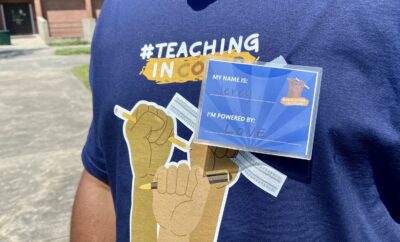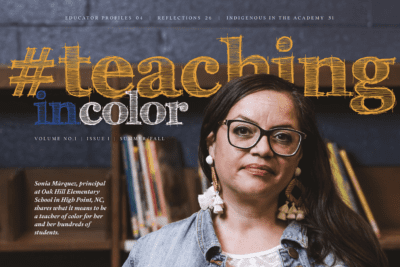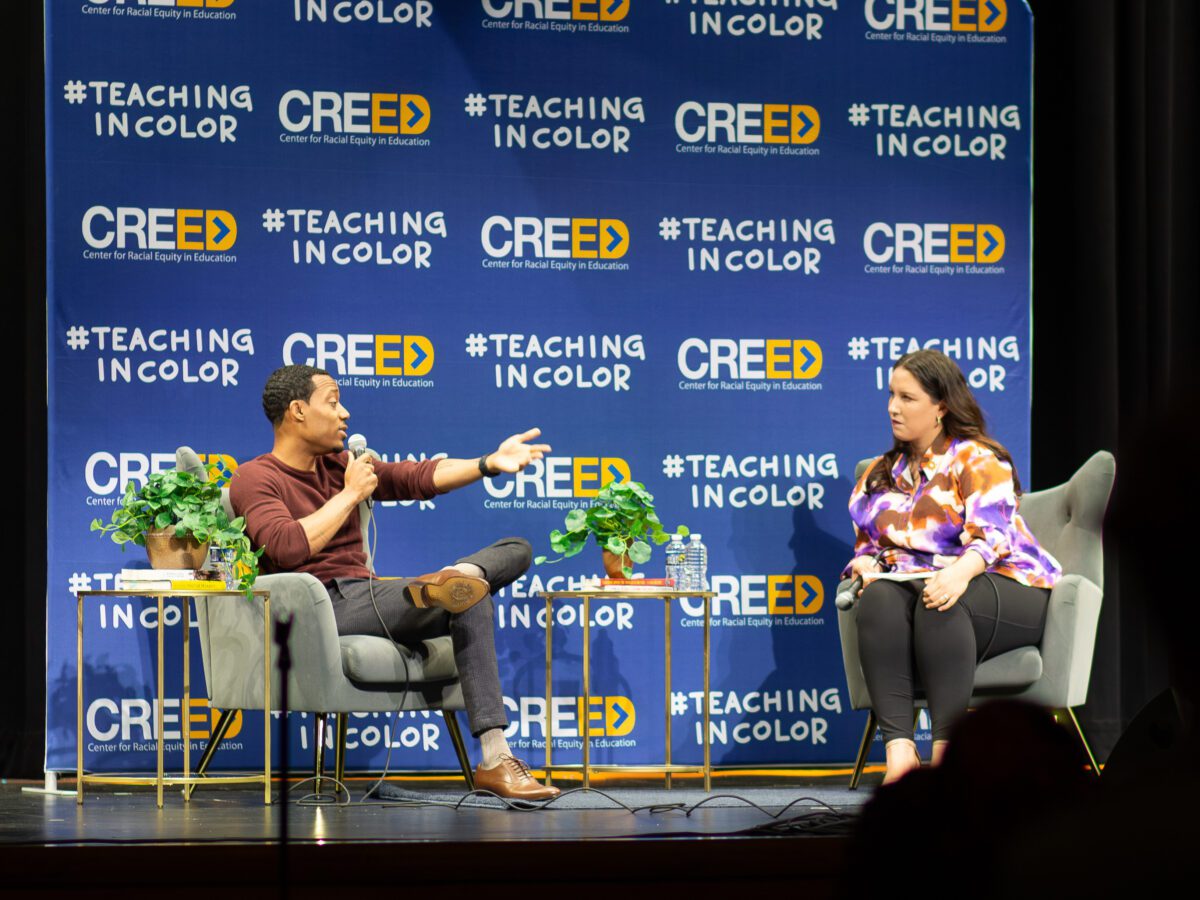
Share this story
|
|
On Saturday, April 27, Elaine Townsend Utin, co-founder and executive director of LatinxEd, interviewed Tyler James Williams, the actor who plays Gregory Eddie in the Emmy award winning show, “Abbott Elementary.” When speaking to the actor about his representation of a young Black male educator in the television series, Townsend Utin drew a connection to his work in film with the phrase, “The roles we play,” which served as the theme for the third annual #TeachingInColor Summit hosted by the Center for Racial Equity in Education (CREED). The summit took place in the Clinton L. Blake auditorium of the historic West Charlotte High School.
The roles we play
In true educator fashion, Townsend Utin elicited crowd engagement throughout the discussion. At one particular moment, she invited the audience to share examples of the various hats they are often forced to wear when choosing to step into the classroom. A myriad of responses flooded the room, including nurse, translator, social worker, interpreter, therapist, and many more. A roaring collective laugh filled the atmosphere when one voice could distinctly be heard shouting, “Uber driver!”
Creating space for joy and laughter within the community was among the apparent objectives of the summit. Simultaneously, responses to Townsend Utin’s prompt directly illuminated the reason behind the selection for the theme this year.
“We deserve joy as educators; we deserve joy as people of color.”
– Kamille Bostick, director of programming for CREED
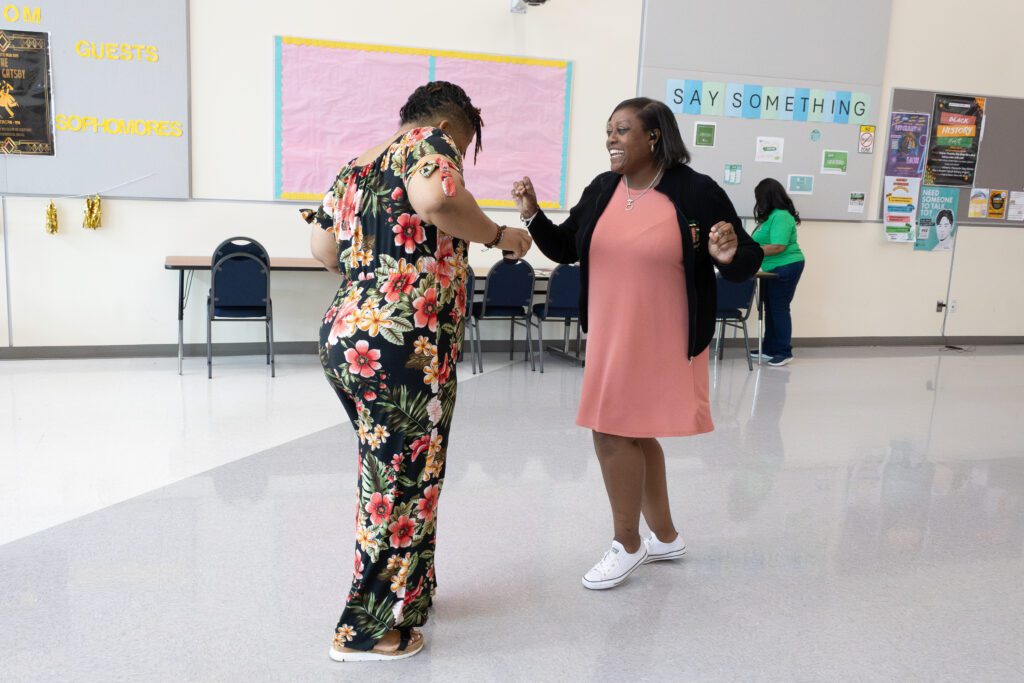
Dr. Jerry J. Wilson, CREED’s director of policy and advocacy, elaborated on the viewpoint, sharing that there is true action behind educators of color being a positive representation, especially for the benefit of students of color. He emphasized that actively “playing the part,” rather than simply “looking the part,” requires educators of color to go above and beyond for the achievement of their students. He further explains it as work that they take on willingly but “to their own detriment at times.” Described as a “labor of love” that is often not compensated and frequently accomplished while under resourced, Dr. Wilson expressed that educators of color continue to act despite the additional tax “because they understand that if they don’t do it, who else will?”
“When people don’t have the resources and the funding that they need to do the job, you’re not giving them the tools. So, the job is going to be done a certain way. But what we try to do with Abbott specifically is we try to humanize the experience of those who are doing this with less tools. Right? It’s easy to talk about how you think a school or school system is failing, but it’s very difficult to say ‘Barbara Howard is failing.’ It’s very difficult to say ‘Janine Teagues is failing.’ And that’s what we’re trying to break down like, ‘No, when you say this, you’re talking about people who go to work every day and are doing the best with what they have. You can’t say that they failed.’”
– Tyler James Williams, Abbott Elementary
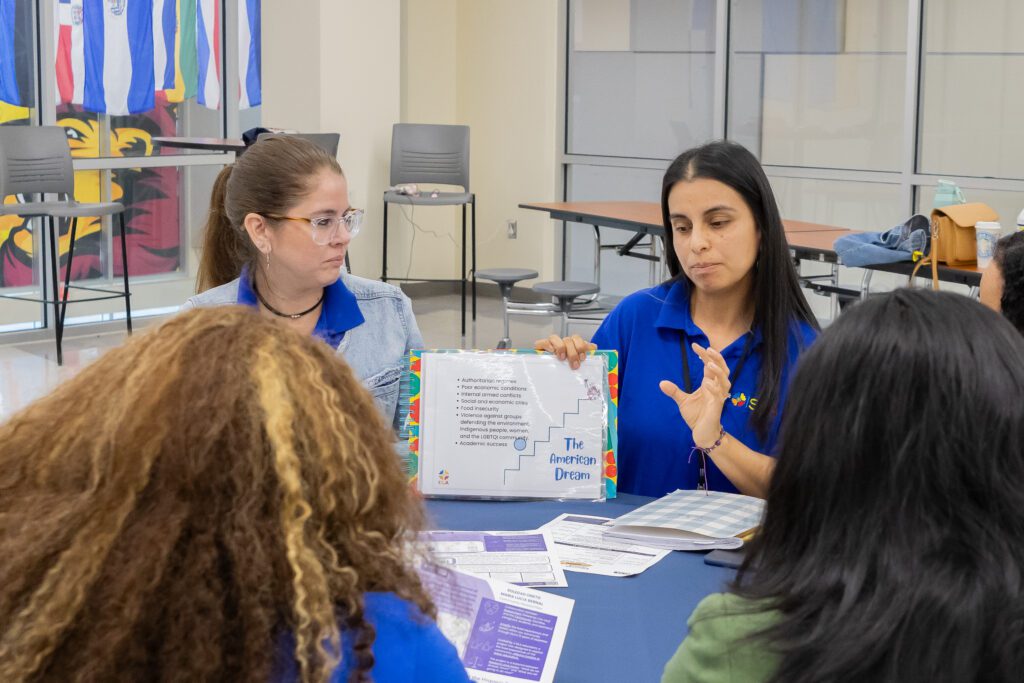

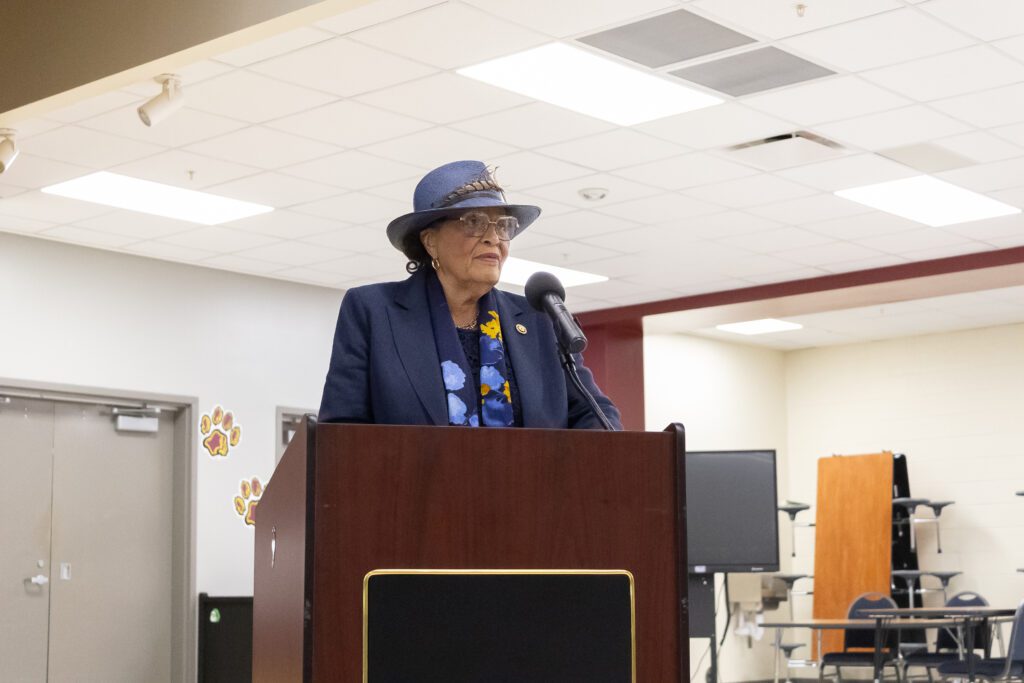
Culmination of a dream
The two-day event was held in Charlotte to address the theme while also allowing educators of color to convene, connect, and overall be celebrated. The experience consisted of an awards ceremony, research symposium, self-care sessions, performance, and more. Here is how CREED is continuing to cultivate the #TeachingInColor (TIC) network across North Carolina and beyond.
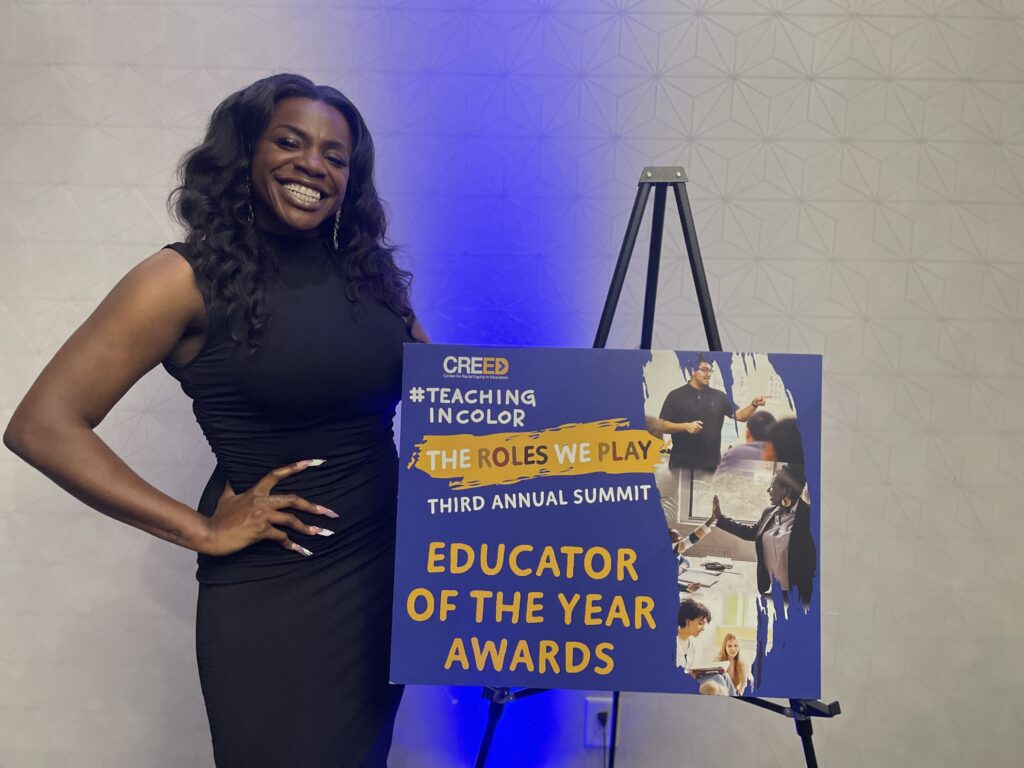
Though the summit is in its third year, CREED held its first TIC “Educator of the Year” award ceremony. The “(Oh)mazing” Ohavia Phillips, CEO of The Oh Show LLC, served as the host for the evening. In her opening address, she thanked all educators and honorees “for being the difference in education, but also creating the space for the next generation to know that it is an option and a privilege to lead through education.”
Phillips highlighted the achievements of the three North Carolina teachers being recognized as the educators of the year:
- CiCi Weston, founder of the Christine Avery Learning Center in Asheville;
- Franchone Bey, English language arts teacher at West Charlotte High School in Charlotte; and
- Angela Uribe Romero, Graham High School Spanish teacher and 22-23 teacher of the year.
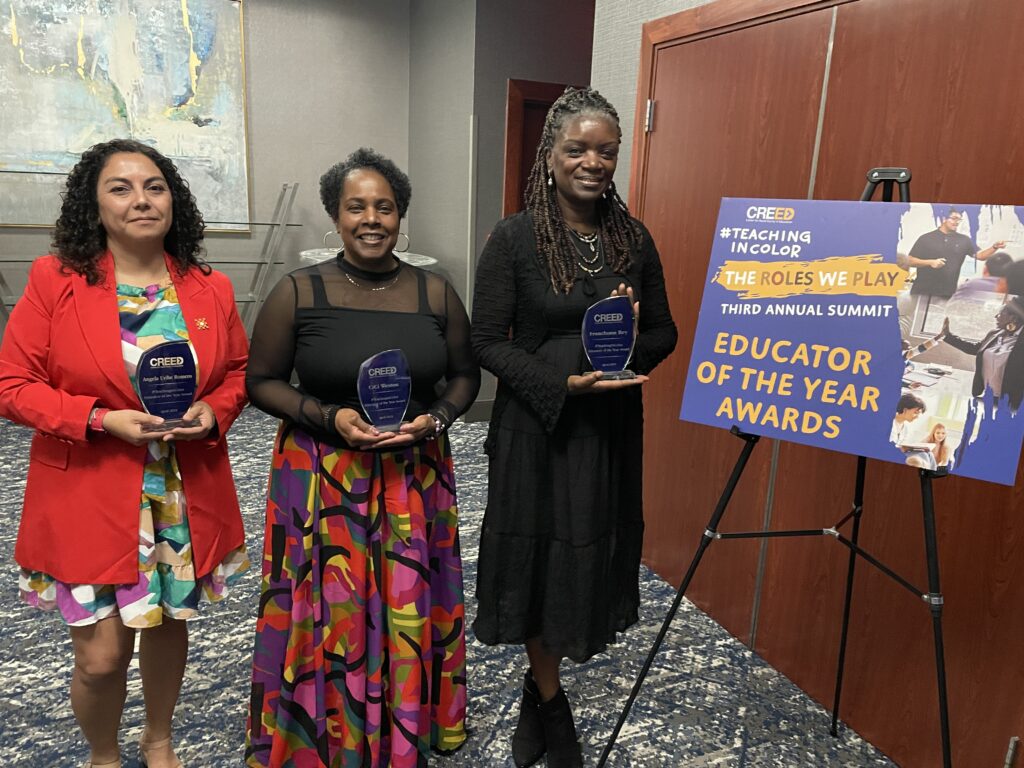
CREED’s co-founder and executive director, Dr. James Ford, expressed that whether it’s an affinity space for shared love or holding space to commiserate with one another, it’s important for the community to gather. Specifically acknowledging the awards, he stated that their goal is “to seize upon the opportunity to celebrate those who are exemplary educators from within the community, from within the culture.”
In a moment that he considered to be a “culmination of a dream,” Dr. Ford added that their intent is to let educators of color know that “we see you.”
“I came to Teaching in Color and the CREED conference to build community, learn how to empower myself and center my students’ voices, as well as my own voice in a field that doesn’t always center people that look like me. My experience has been very empowering … It shows that there’s still so much work to be done, and that I can still be part of it. To not feel burned out by the work or overcome by the amount of work that there is to do because people are trying to organize and people are trying to make a difference for the good of education as a whole.”
– Katrisha Paul, high school math teacher
#TeachingInColor: a space of belonging
According to Dr. Ford, TIC began as a writing series and transitioned into monthly Twitter (now known as X) chats. He said these conversations created bonds, broke apart pockets of isolation, and allowed those who understood both the struggle and culture to address issues that they didn’t often have the space or opportunity to discuss.
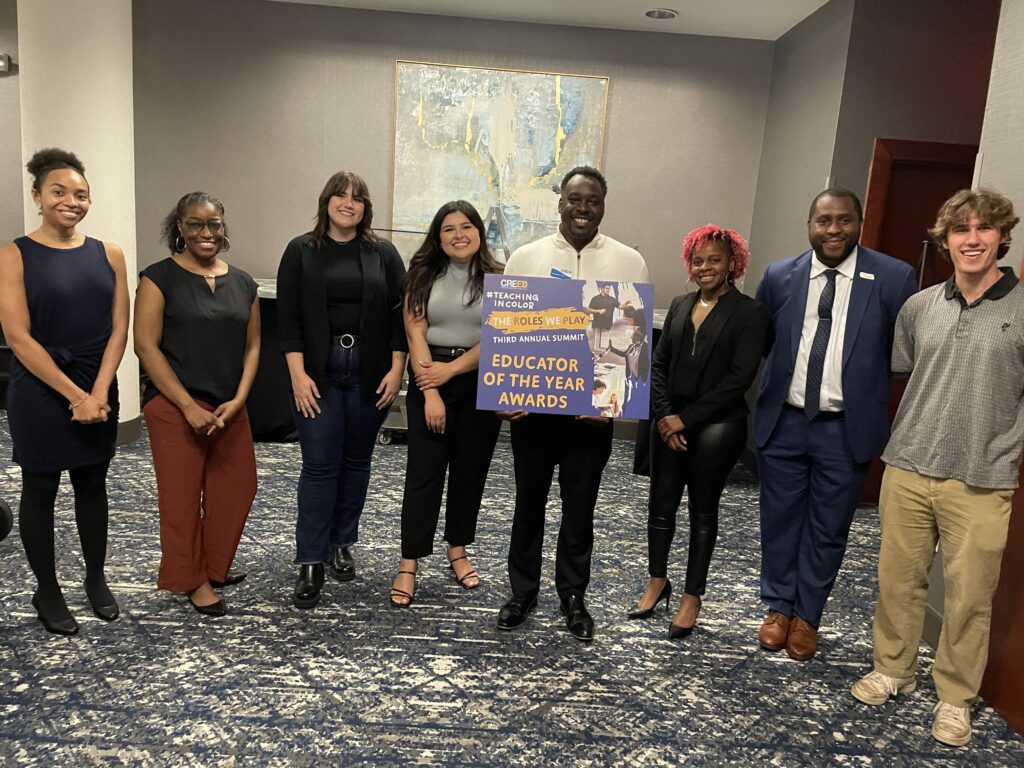
CREED’s director of programming, Kamille Bostick, said once the organization grew its roots with bringing small groups of people together, they recognized the interest and importance of doing a full-fledged summit where attendees could “learn together, celebrate together, building the community itself.”
Now in its third year, Bostick noted that while the summit features a research symposium and other discussions to share data and expertise among the community, they intentionally embedded time for participants to rest and enjoy each other.
“We deserve joy as educators; we deserve joy as people of color,” she stated.
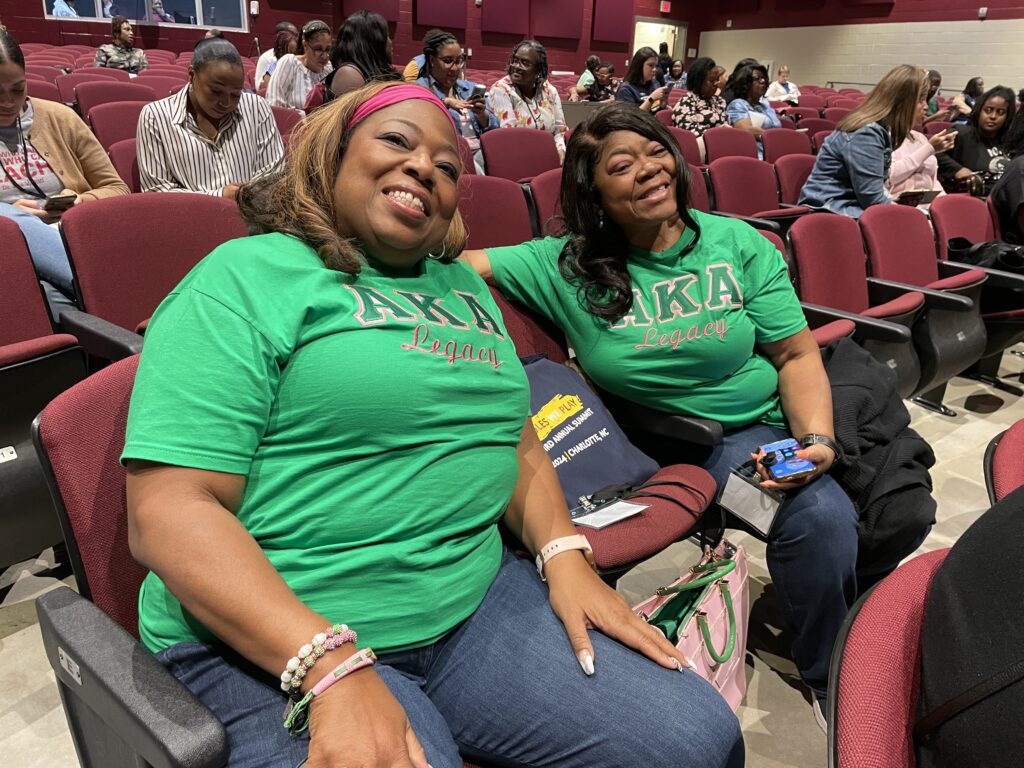
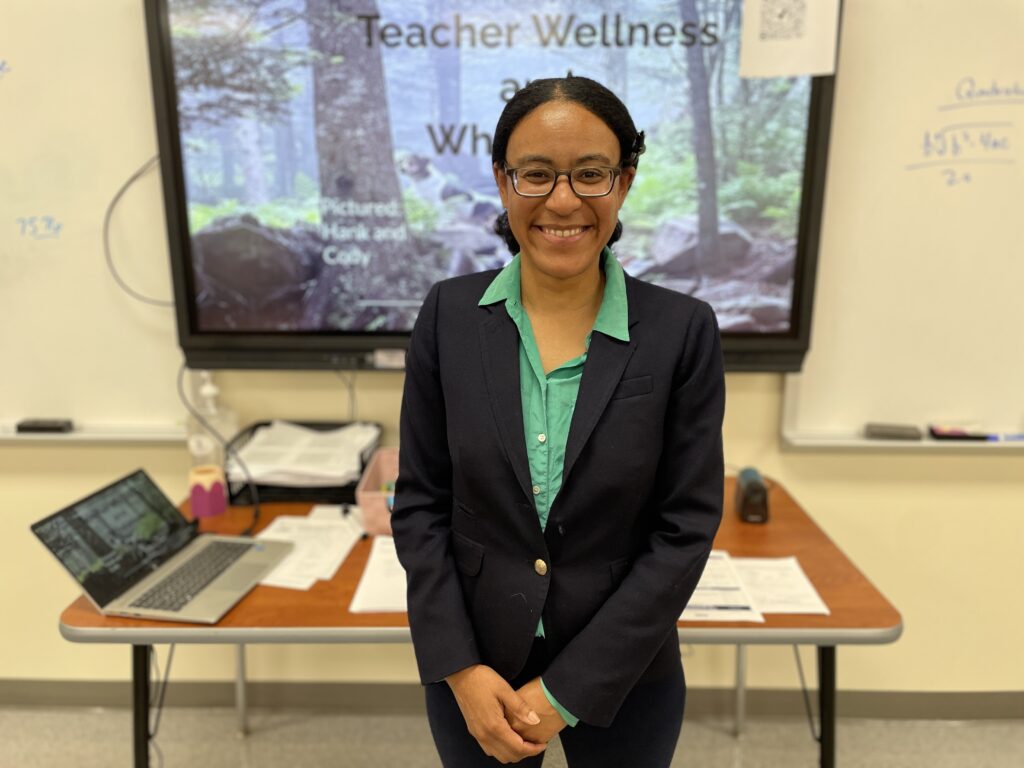
A prominent focus at the summit was the concept of belonging. Bostick moderated a panel discussion titled, “The Roles We Play,” which featured Dr. Sabreen Mutawally, Dr. TaVshea Smith, and Kumar Sathy.
According to Sathy, “We find that belonging when we’re in these spaces where people recognize that we’re on a journey, not a performance.” He explained that both educators and students need environments where they are allowed to share “uncooked thoughts,” and to be able to be wrong, change their perspectives, and grow.
“To me, belonging is a sense of safety. You should feel secure within that context of belonging. I think that it’s very easy to feel comfort in a space where you just can kind of navigate it, and I think it’s also easy to indicate where you feel uncomfortable and not safe — that you don’t belong in a space. So for me, belonging should feel like home, and if it doesn’t feel like that, and you don’t get this kind of sense within yourself that you can show up as your true authentic self, then it is probably not a space of belonging.”
– Yasmin Forbes, curriculum specialist of the National Council for History Education
Dr. Smith stressed the importance of staying connected to community and various organizations, especially those with like-minded individuals that promote lifelong learning. Dr. Mutawally named The Sister Circle as one example. It is a nonprofit organization that she is part of focused on “elevating and empowering women emotionally, spiritually, mentally, and physically.” This aligned with her need to be “able to have the opportunity to really speak and say what I need to say and not feel judged, not feel condemned, not feel shame, not feel rejected,” she explained.
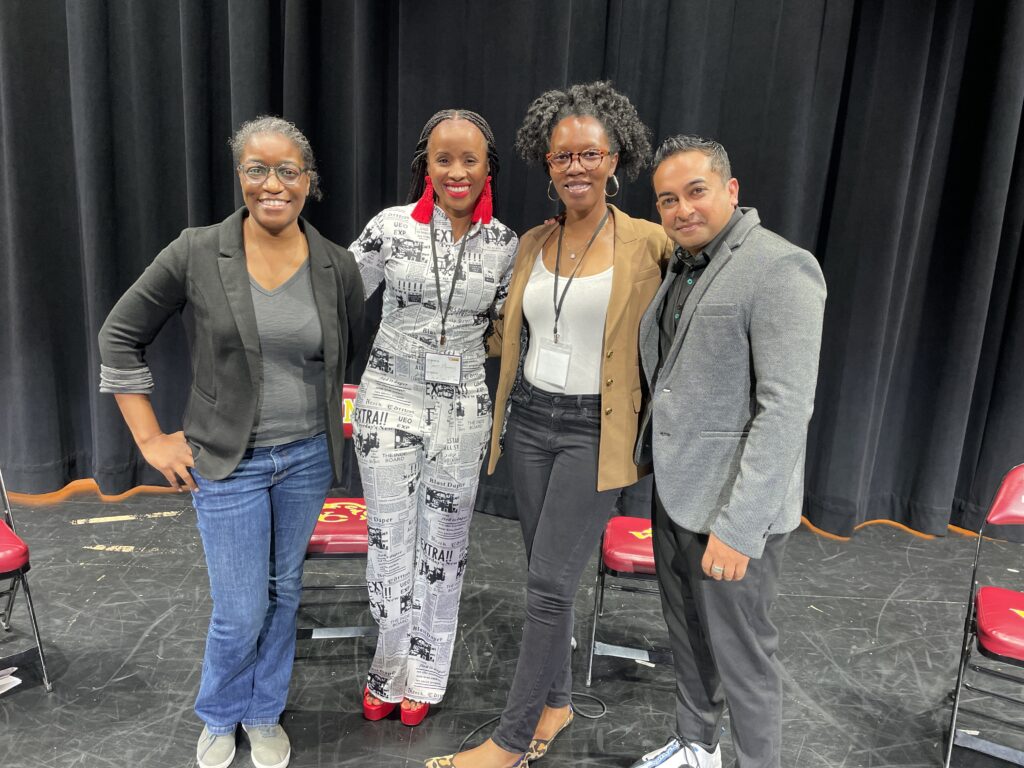
What are your “pouring concrete” moments?
Throughout the day, there were 10 breakout sessions focused on professional development and research presentations, including topics such as building student-teacher relationships, equity and inclusion in STEM, and centering students with learning differences.
Anna Cunningham, a Charlotte-Mecklenburg educator, hosted a breakout session dedicated to exploring teacher wellness and wholeness. In addition, TIC included a wellness fair. Attendees were able to engage with several vendors that showcased art, books, yoga, journals, and membership to organizations like Profound Ladies that center on wellness and retention for BIPOC women in education.
CREED prioritized putting wellness into action by implementing “Take Care Holistic Sessions.” Attendees were encouraged to participate in one of the offerings, including guided painting, affirmations, quiet reflection time, yoga, and a sound sanctuary. The evening concluded with a social experience filled with food, live music, and poetic performances and space to network across the TIC community.
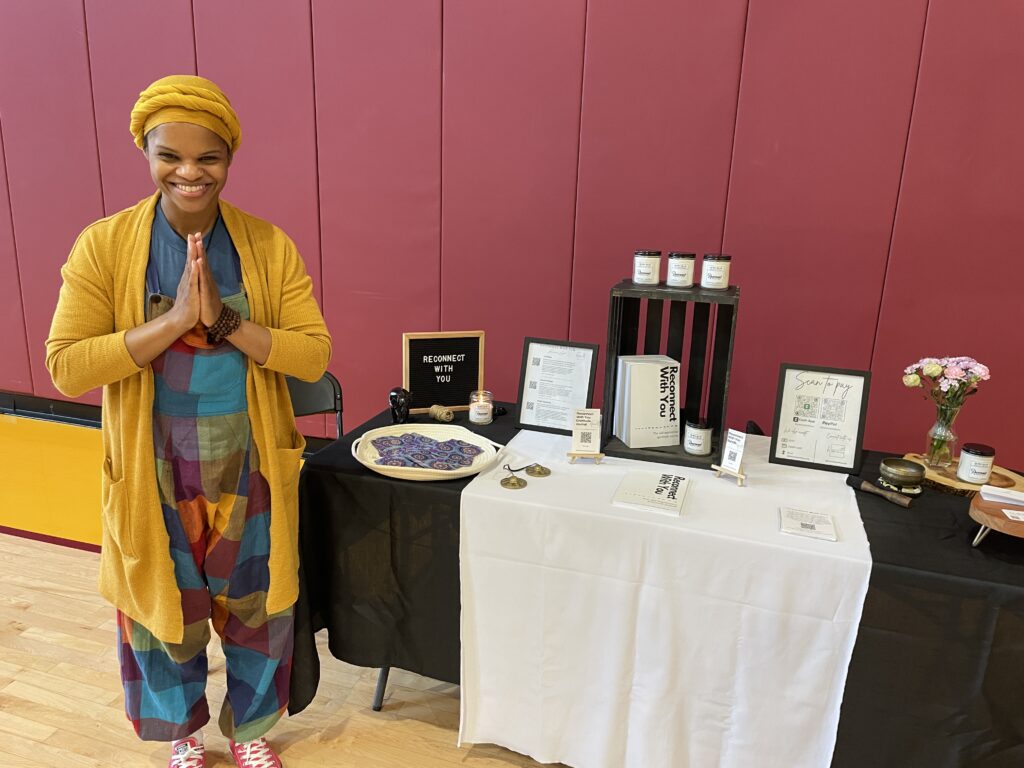
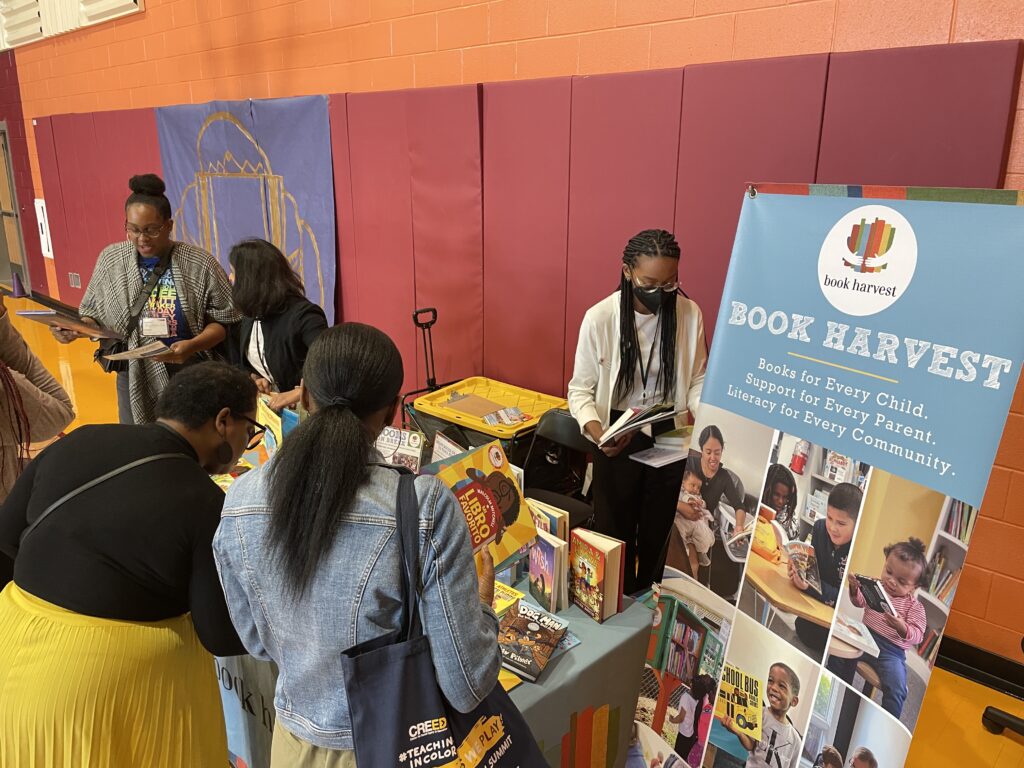
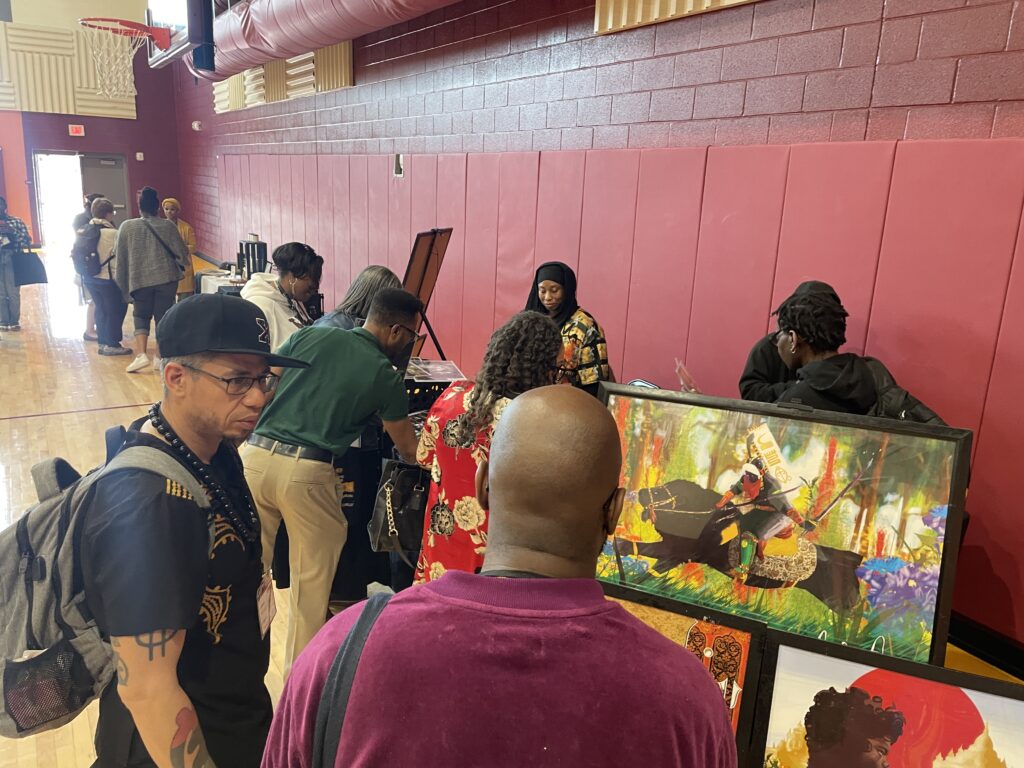
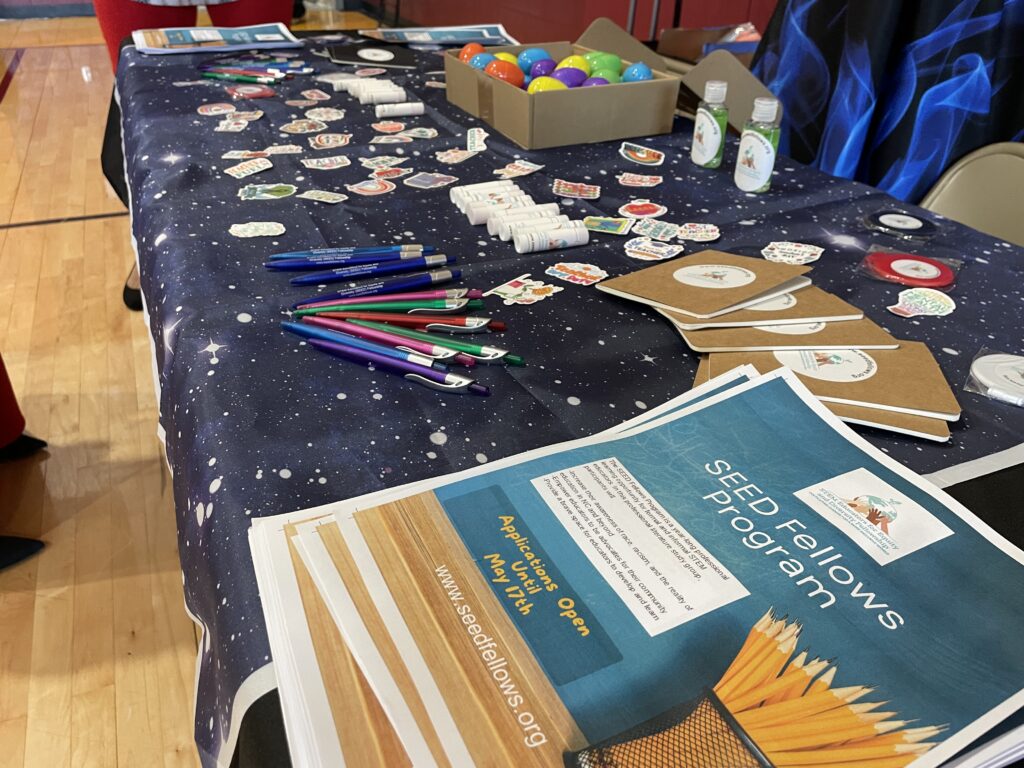
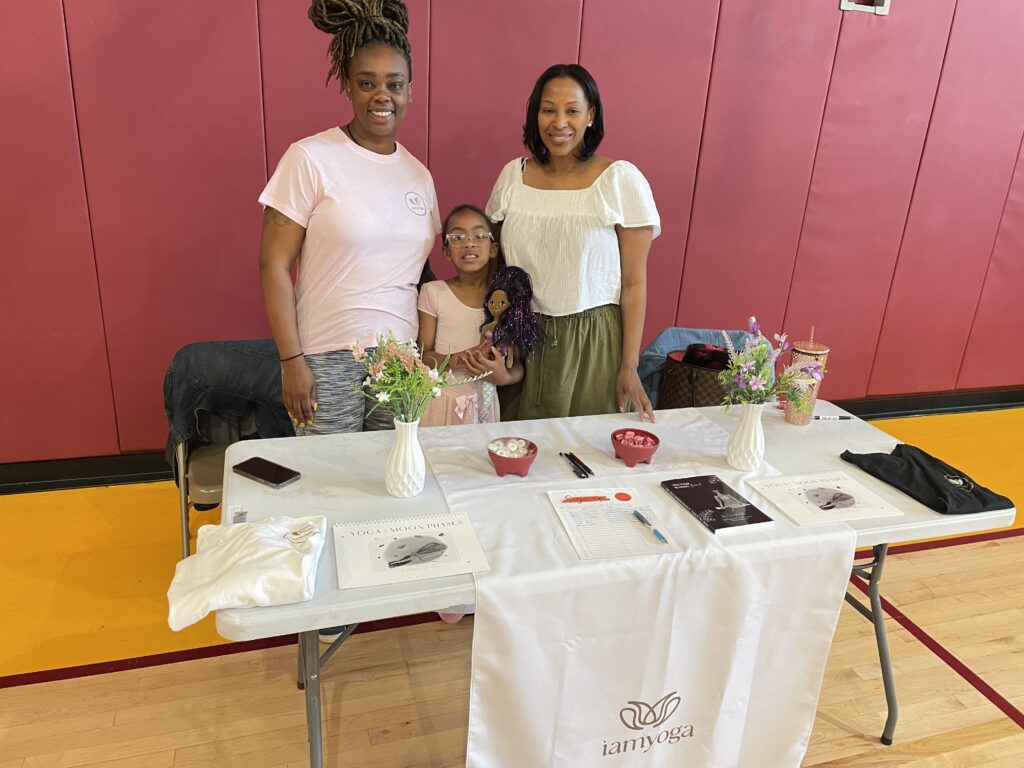


In closing, Tyler James Williams shared that being on “Abbott Elementary” allowed him to not only reflect deeply on his own educational journey, but also on the impact being made on those who he represents on screen.
In another prompt to the audience, Townsend Utin invited them to share words that embody their reactions and overall view of Williams’ portrayal of Mr. Eddie. “Aww,””yasss,””amen,” and “finally,” were all among the responses. Notably, Black male educator and Thomasville City Schools board of education member JaQuez Taylor said, “[I see] myself.”
“If y’all don’t like it, then we might as well stop, you know what I mean?” Williams said. “Because that’s what we’re here to do. We’re here to tell the stories of people who just can’t get that story forward.” Williams acknowledged that this plays greatly into the success that the show has experienced.
Quinta Brunson is the executive producer, co-writer, and star of the series. The show has netted 15 Primetime Emmy Award nominations and won four, including “Outstanding Lead Actress in a Comedy Series” for Brunson.
With that kind of success, Williams said, the studio decided to “make this literally concrete.” According to Williams, the studio is pouring concrete for the school set on the Warner Bros. lot.
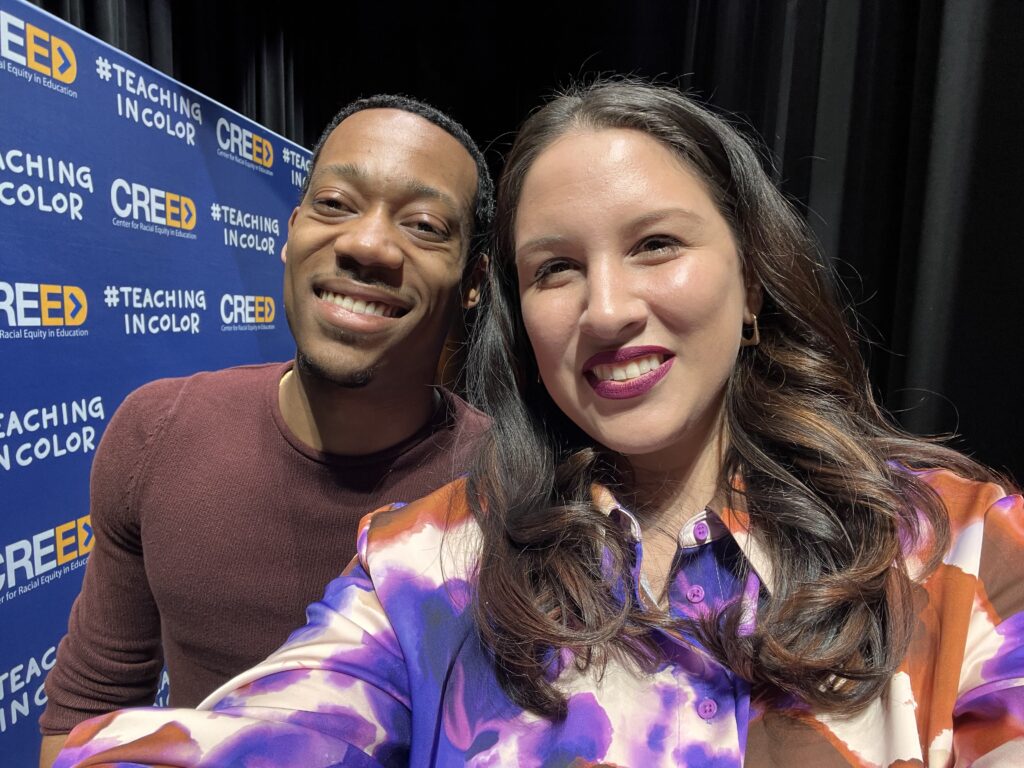
After over 12 hours of filming, Williams said he nudged Brunson to stay behind to walk around and witness all the places where concrete is being poured as a result of her steadfastness to her dreams and hard work.
“I pray that everyone has that. That everyone in this room, in doing what you’re doing, has somebody that you can just take a walk with and take in what you did because those little victories are huge. Pouring concrete in any other situation is not that big of a deal, but here, that’s something to be appreciated. I learned the importance of that on this show.”
– Tyler James Williams, Abbott Elementary
Stay connected to commune
While the TIC summit has come to a close, CREED invites educators of color to continue to engage with content and community. Here are various offerings to interact with and stay in touch:
- Listen to the #TeachingInColor Mixtape created by a collective of educators, musicians, and poets who came together to “meditate on the experience of teaching and learning as persons of color.”
- View the #TeachingInColor Magazine, a biannual publication that celebrates, amplifies, and spotlights individuals and issues related to educator diversity and retention.
- Join the #TeachingInColor Community, a network of educators of color in North Carolina (and beyond) building a supportive community, sharing resources, and making schools more equitable.



